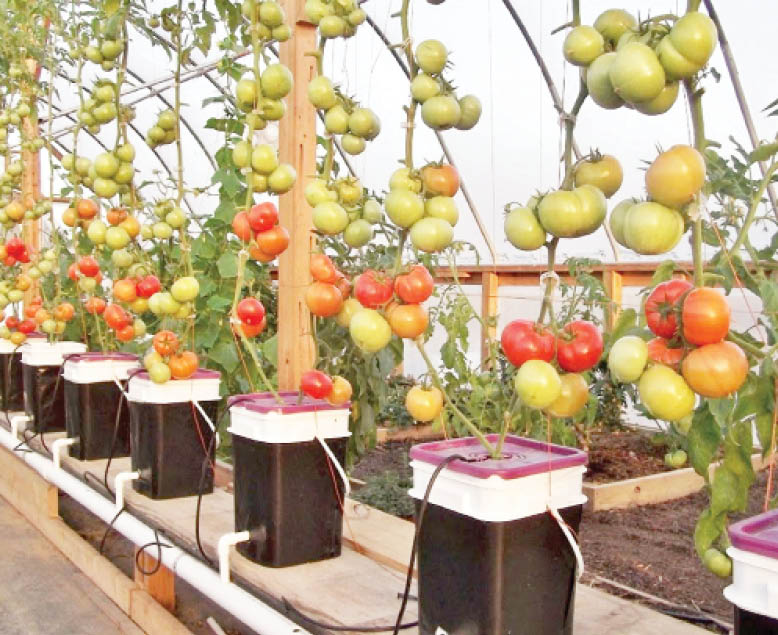Why Nigeria should pay attention to agro processing – Agripreneur
Nigerian farmers and agripreneurs have been urged to focus on processing in order to enrich the country, create employment, reduce dependency on foreign exchange and create a value chain that would transform the economy. In an interview with Daily Trust on Sunday, a Lagos-based agripreneur, Usman Imanah, said he was worried that Nigeria is poor […]

Soilless tomato farm
Nigerian farmers and agripreneurs have been urged to focus on processing in order to enrich the country, create employment, reduce dependency on foreign exchange and create a value chain that would transform the economy.
In an interview with Daily Trust on Sunday, a Lagos-based agripreneur, Usman Imanah, said he was worried that Nigeria is poor as a country due to her focus on production rather than processing.
Imanah, who is the chief executive officer of Friska Farms, noted that the reason there were issues in the agriculture sector could be linked to the country’s focus on production and exportation, while the processed goods are imported.
“It is one thing to process, but those people processing need a standard, such that when someone enters a supermarket, Nigerian products will be there. What that does is that it creates jobs, reduces our dependency on forex, and it creates a value chain that will transform the economy.
“If we have Nigerians going into agric processing, then, we don’t have to import biscuits and other edible items to feed ourselves; we will be alright. This will reduce importation. When a commodity is sent abroad for processing, it has put pressure on the economy and taken jobs that would have been created here to lift people out of poverty. Also, you have taken income from the government in the form of tax that would have been paid. You are more or less killing the economy,” he noted.
He emphasized that cocoa, cashew and other commodities exported as raw materials and brought into the country as processed products could be done in Nigeria with the right skills and machinery.
“We export cocoa and bring in chocolates. In terms of net of trade, what we import is more than what we export. Why should cashew nuts come from America when those guys come to pick the cashew from Nigeria? They just clean it and roast it, which is done by machines. They then package it and send it here. How can we move forward?”
He stressed that agripreneurs should learn about agribusiness before venturing into it, rather than jumping into the business without the requisite knowledge, which could lead to losses.
He admitted that making losses and mistakes are part of the learning process, but added that learning from one’s mistakes to improve would lead to growth and profit.
“While doing agribusiness, there is a chance that losses can be made; people can deceive you and you can make mistakes. It is part of the learning process. Making mistakes and losing at some point is part of it,’’ he noted.
He assured agripreneurs of a return on their investment, stressing that agriculture is the highest investment to be ventured into.
“If you take a seed of corn, water it and it grows, one corn will give about 500 seeds, and when 10 are gotten, it will give 5,000. There is no investment in this world that you will put one and get 5,000.”
